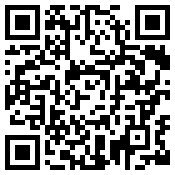To cut the crap short, and get to the point... It is amazing how many educators (that I have crossed path with) until today (Yes, already 2010!), who are clueless or know little about the amazing world of Open Educational Resources (OER)/Open Courseware (OCW) and learning tools. There are probably many reasons for that, so I am not going to go into that.
But, what I find even more shocking and troubling is educators who are also clueless about the amazing
learning possibilities (tools and resources) within their own field/area/specialization/learning domain. I just hope you are not one of them.
No doubt we can't know and do everything, and there will always be new tools and resources blazing through in an ever growing global learning sharing stream. But, we should have some idea, or be open to explore new and innovative learning possibilities within our learning domain(s), because our students deserve it (or they will eventually desert us...).
WHAT TO DO?So, how can we
motivate or inspire educators to find and explore these new learning possibilities?
Peer pressure? Peer recommendation? Now, we are getting closer (I think!). Of course mambo jumbo lists are useful (e.g.
OER), but for a busy educator it might be....
No time for that! Stephen Downes's quote above makes sense!
But, what if we filtered out the juiciest learning resources and tools, and stamped our validation for use (or recommendation). Now, that would be interesting, wouldn't it? Instead of 1000, 100, it is narrowed down to digestible portions (unless you are
Takeru Kobayashi!).
To set a
digestible portion criteria, we could use the
magical number of seven, but I am going to suggest no more than 10 for whatever... Anyway, we don't have to be too rigid on such things, but just be reminded that
Less is often more (especially for learning). Look who's talking :)
For example, I am looking for excellent resources or tools to explore critical thinking, where to start? I know Stephen Downes is facilitating a
Critical Literacies Online Course, and has published a widely used '
Guide to the Logical Fallacies'. So, wouldn't it be great to have a juicy Top 10 (or anything less, or perhaps a bit more!) list of excellent critical thinking resources recommended by Stephen Downes as a starting point.
Of course, there are many more sites to explore, but having
a great starting point validated or recommended by an expert won't harm anyone (would it?).
So, let's think bigger! What if more experts shared their filtered and recommended learning resource lists for their particular specializations or areas. Imagine great contextualized learning start points for Psychology, Medicine, Biology, Law, English, Creative thinking, critical thinking...(perhaps a bit more micro) you name it. Now, wouldn't that be useful?
MY TOP 10 LEARNING SITES FOR PERSONAL LEARNINGHere are 10 amazing learning resources to explore for personal learning, especially if you are into e-learning and learning (Not ranking, just numbering):
Alright, that was my top 10 learning sites for personal learning. What about you?
Do you have any amazing sites to share from your learning domain? If you are interested to participate, simply share your Top 10 list through your blog, or using any learning tool convenient for you. Then, either blast me a comment with a URL to your list, or perhaps tweet the URL to the list using the following Twitter hashtag:
#T10LS
If many of you want to participate, I will setup a wiki (using Google Sites), whereby we all can collaborate to build. Actually, it would have been cool if someone like Jane Hart could use her magic to create something similar to the
Top Tools for Learning 2010 for learning sites. Now, that would be awesome!
If no one is interested, too bad! At least you can enjoy my top 10 (personal) learning sites list above. Perhaps, whatever I have said, already exists. What do you think? :)





 NOTE: These tutorials require a special Flash plug-in, version 8 or above. If you do not have Flash, you will be prompted to obtain a free download of the software before you start the tutorial.
NOTE: These tutorials require a special Flash plug-in, version 8 or above. If you do not have Flash, you will be prompted to obtain a free download of the software before you start the tutorial.


